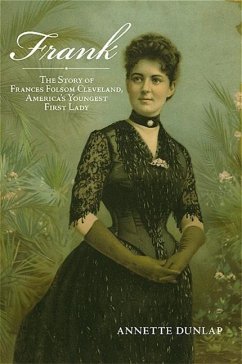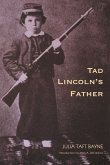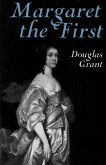When she married forty-nine-year-old President Grover Cleveland in a White House ceremony on June 2, 1886, Frances Folsom Cleveland was only twenty-one years old, making her the nation's youngest First Lady. Despite her age, however, Washington society marveled at how quickly the inexperienced Mrs. Cleveland (known as "Frank" to her family and friends) established herself as a social leader and capable spouse. Her popular Saturday receptions and glittering formal social events, combined with the warm and winning personality she displayed during her first two years in the White House, made her one of America's most popular First Ladies.
Yet, as Annette Dunlap demonstrates in Frank, there was more to this charming and resolute woman than her social and entertaining skills. Active in New York society during the four years between the two Cleveland administrations, Frances built relationships with many of the nation's elite that helped return her husband to the White House for a second term. She played a pivotal role in keeping Cleveland's operation for cancer a secret, and as the country's economic picture and Cleveland's political popularity deteriorated, she coped admirably with criticism of herself and her husband, as well as lies about her children's health.
Even though she shared her husband's opposition to women's suffrage, favoring instead an exalted role for women in the home, she struggled with Cleveland's possessiveness. A strong and opinionated woman in her own right, she developed her own network of associations that promoted kindergartens, mission work, and charitable activities that alleviated conditions for the poor.
The first widowed former First Lady to remarry, Frances found new life as a political activist, taking a strong stand for military preparedness and promoting the need for a just and lasting peace at the end of World War I. She maintained leadership roles in several organizations well into her seventies, including the board of trustees of her alma mater, Wells College. Her lasting contributions to both early and higher education, as well as her work on behalf of the poor, may well make Frances Folsom Cleveland one of America's most underrated First Ladies.
Yet, as Annette Dunlap demonstrates in Frank, there was more to this charming and resolute woman than her social and entertaining skills. Active in New York society during the four years between the two Cleveland administrations, Frances built relationships with many of the nation's elite that helped return her husband to the White House for a second term. She played a pivotal role in keeping Cleveland's operation for cancer a secret, and as the country's economic picture and Cleveland's political popularity deteriorated, she coped admirably with criticism of herself and her husband, as well as lies about her children's health.
Even though she shared her husband's opposition to women's suffrage, favoring instead an exalted role for women in the home, she struggled with Cleveland's possessiveness. A strong and opinionated woman in her own right, she developed her own network of associations that promoted kindergartens, mission work, and charitable activities that alleviated conditions for the poor.
The first widowed former First Lady to remarry, Frances found new life as a political activist, taking a strong stand for military preparedness and promoting the need for a just and lasting peace at the end of World War I. She maintained leadership roles in several organizations well into her seventies, including the board of trustees of her alma mater, Wells College. Her lasting contributions to both early and higher education, as well as her work on behalf of the poor, may well make Frances Folsom Cleveland one of America's most underrated First Ladies.
Dieser Download kann aus rechtlichen Gründen nur mit Rechnungsadresse in A, D ausgeliefert werden.









